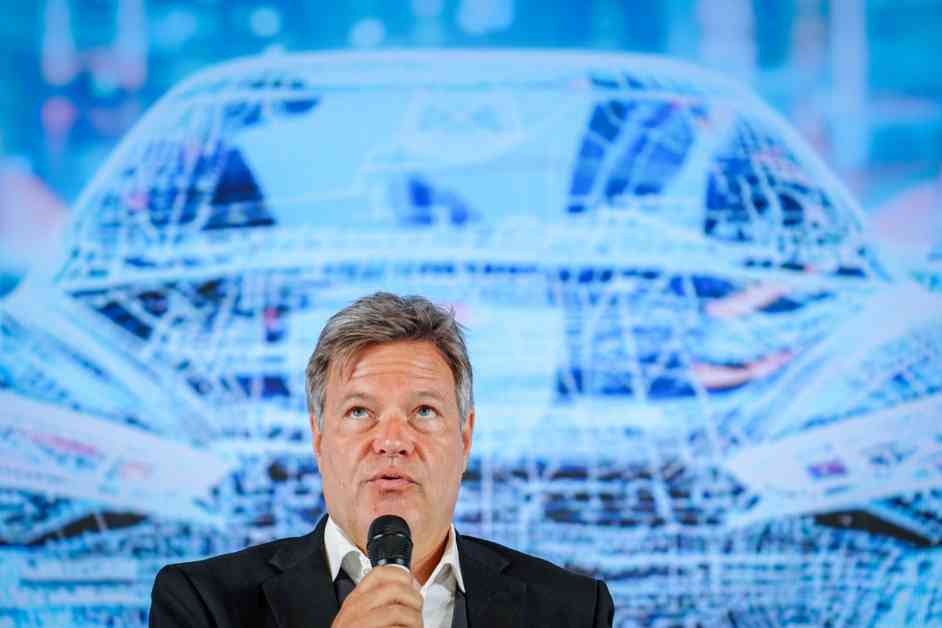The German automotive industry is facing challenges due to weak sales figures and competition from China. How can this situation be changed? Minister of Economic Affairs Robert Habeck sees great opportunities in one field. But the competition is tough here too.
Minister of Economic Affairs Robert Habeck has described autonomous driving as a „huge opportunity“ for the German automotive industry. The Green politician said at a conference with representatives of the automotive industry in Berlin that it is an opportunity for manufacturers, for the economy, but also for safety in traffic, driving comfort, and climate protection.
„We just need to pick up momentum now and not slow down in speed,“ Habeck said. The future of driving will sooner or later be autonomous. However, the competition is extremely tough, Habeck said, with a view to the USA and China. „We need to be the most innovative country.“
At the conference, the focus was on the increased use of artificial intelligence for autonomous driving. Manufacturers are working together in a project funded by the federal government. Car manufacturers provide data. Habeck said that the safety of autonomous driving is increased through the „training“ of artificial intelligence.
In a document, it is stated that an autonomous vehicle must perceive its environment and be able to react appropriately. In highly automated vehicles, these tasks are increasingly being taken over by artificial intelligence.
The German automotive industry has recently been making negative headlines. Manufacturers are struggling with weak sales figures and high costs for the transition to electric drive. At the same time, business abroad is stagnating, especially in China.
Marcus Bollig, managing director of the Association of the Automotive Industry (VDA), pointed out two major transformations in the industry: more climate-friendly drives and increasing digitization. Bollig made it clear that a leading role of the German automotive industry in autonomous and highly automated driving could be a decisive success factor in the future. Mercedes development board member Markus Schäfer said, „Germany is pooling its resources for autonomous driving.“
The development of autonomous driving is picking up tremendously, said Schäfer. Before the end of the decade, there will be so-called Level-4 vehicles on the roads. Framework conditions must be created in Germany and Europe to be able to test such vehicles in a „controlled space,“ as the USA and China do. Safety is the top priority, but safety can be combined with innovation.
When it comes to autonomous and automated driving, five levels are distinguished. Level one includes cruise control and lane assist, level two includes automatic parking and overtaking. Level three means highly automated driving, where a car moves in traffic without any human control – but the driver must be able to intervene.
Schäfer said that Mercedes-Benz was the first manufacturer in the world in 2021 to receive approval in Germany for highly automated driving at Level 3. At level four, the driver becomes partly a passenger, the car can make its own decisions. Level five marks the beginning of fully autonomous driving, where vehicles can drive from point A to point B on their own.

